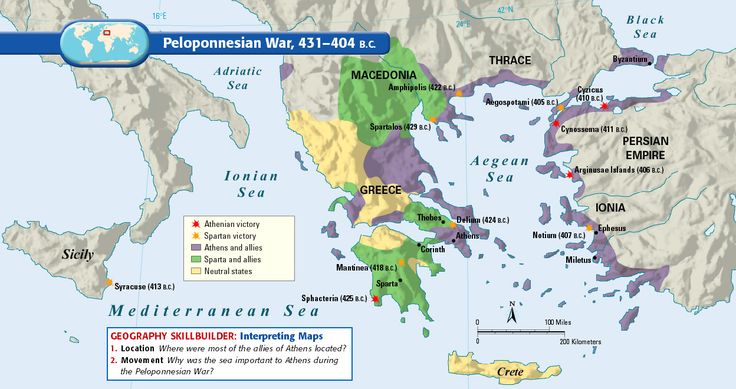AP World History - Topic 3.4: Greek Achievements
(I) Influence of Geography
Greece's mountainous terrain and scattered islands in the Aegean and Mediterranean Seas created natural separations between regions. These physical barriers encouraged the development of independent city-states, or poleis, which fostered unique political and cultural identities.
Agricultural Limitations: Due to limited fertile land, Greek agriculture focused on cultivating olives, grapes, and barley, influencing the diet and economy.
Independent Development: Isolated city-states like Athens and Sparta developed distinct systems and values due to geographic separation.
(II) The Persian Wars and Greek Unity
The Persian invasions (499–449 BCE) led by Emperor Darius I and his successor Xerxes unified Greek city-states against a common enemy.
Notable Battles: Victories in the battles of Marathon and Salamis showcased Greek strategy and valor.
Formation of the Delian League:
The Delian League was an alliance of Greek city-states formed in 478 BCE, shortly after the Persian Wars, to protect against Persian aggression and ensure the safety of the Aegean Sea. Named after the island of Delos, where its treasury was initially located, the League began as a voluntary coalition led by Athens. The members contributed money, ships, or soldiers to the alliance, pooling resources to maintain a strong naval defense.
This defensive alliance, initially formed to counter Persia, eventually strengthened Athens’ dominance, leading to its Golden Age under Pericles.
(III) The Age of Pericles: Democracy and Civic Duty
Under Pericles’ leadership (449–431 BCE), Athens experienced significant democratic reforms and cultural prosperity.
Democratic Reforms: Only Athenian-born males over 18 could vote. Political participation was encouraged through paid jury service and elected officials.
Delian League Transformation: Pericles used the Delian League to enhance Athens' influence, reinforcing its position as a leading power in Greece.
(IV) Greek Philosophical and Artistic Achievements
The Classical Period (500–300 BCE) saw the flourishing of philosophy, drama, art, and architecture, which would shape Western thought.
Philosophers: Figures like Socrates (the inventor of the iconic Socratic method of teaching), Plato, and Aristotle pioneered new approaches to ethics, politics, and metaphysics.
Architectural Masterpieces: The Parthenon exemplified Greek ideals of symmetry and balance, influencing future Western architecture. Modern-day structures, including the White House, reflected many of the architectural styles and principles established by the Greeks, showcasing the enduring legacy of their design philosophy.
Drama and Literature: Playwrights like Sophocles explored themes of morality and civic duty, as seen in works such as Antigone, which questioned state power and individual rights.
(V) Scientific and Mathematical Contributions
Greek scientists and mathematicians laid the groundwork for disciplines that remain integral today, including geometry, physics, and astronomy, with figures like Euclid and Archimedes making groundbreaking contributions that shaped our understanding of these fields.
Euclidean Geometry: Euclid’s Elements codified foundational principles of geometry, which have influenced education and engineering. Euclid is often considered the “father of geometry” due to his widespread discoveries in the subject.

Medicine: Hippocrates, regarded as the “Father of Medicine,” developed the Hippocratic Oath, emphasizing ethical responsibility, a cornerstone of modern medical practice.
(VI) Athens vs. Sparta: Political and Social Contrasts
The rivalry between Athens and Sparta highlighted the diversity within Greek culture and their differing approaches to governance, with Athens embracing democracy and intellectualism, while Sparta prioritized military prowess and discipline.
Athens
Focus on Democracy and Philosophy: Known for its democratic system, Athens prioritized education, the arts, and intellectual pursuits.
Navy and Trade: Athens’ strong navy enabled trade expansion and defense, fostering economic growth.
Sparta
Military Discipline: Spartan society was highly militaristic, with boys undergoing rigorous military training from a young age.
Rights for Women: Spartan women had more freedoms compared to Athenian women, including property ownership and physical training, which supported Sparta’s militaristic culture.

(VII) Key Figures of the Greek Golden Age
Herodotus: Known as the “Father of History,” Herodotus’ accounts introduced objective historical recording, which influenced historical methods.

Cynisca: The first female Olympic champion, Cynisca’s achievements in chariot racing highlighted women’s capacity to excel in competitive arenas.
(VIII) Legacy and Lasting Influence
Greek achievements in governance, philosophy, science, and the arts provided a foundation for Western civilization that continues to shape modern thought and societal structures, inspiring countless generations in the pursuit of knowledge and excellence.
Democracy and Civic Duty: Athens’ democratic principles influenced future political systems.
Scientific Method and Ethical Medicine: Greek emphasis on observation and ethics laid the groundwork for modern scientific and medical practices.
Cultural and Philosophical Heritage: The works of Greek philosophers and playwrights continue to shape modern thought, emphasizing reason, ethics, and the pursuit of knowledge.